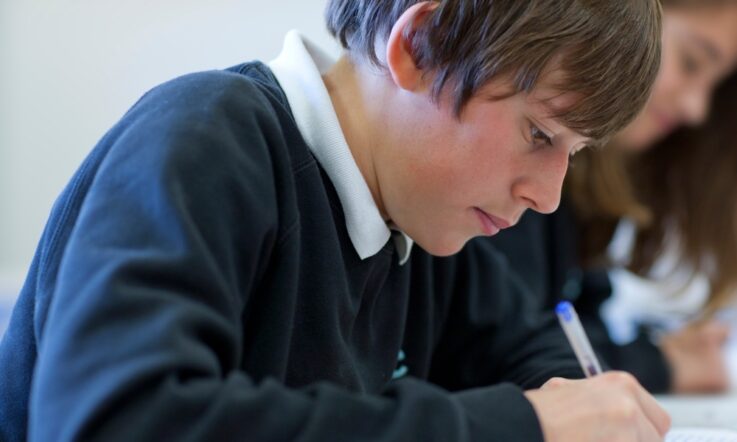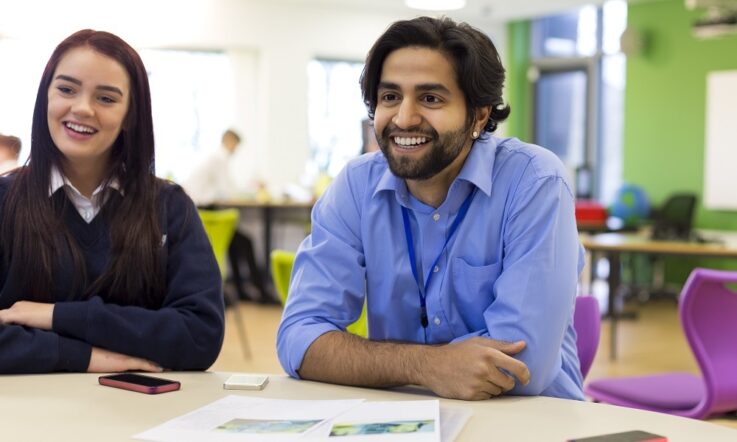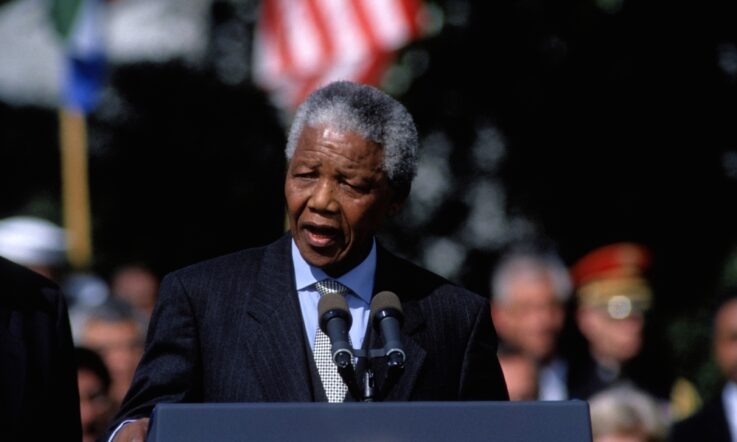This podcast from Teacher is supported by LiteracyPlanet. A fun and engaging English literacy platform that empowers both teachers and students. Get 4 weeks access at literacyplanet.com/teacher.
Thanks for downloading this podcast from Teacher magazine. I’m Dominique Russell. In this episode of School Improvement, we’re taking you to Ireland, where research has recently been conducted looking at engaging students in the school self-evaluation process in a meaningful way. The research is outlined in the paper, Students as co-researchers in a school self-evaluation process, and the lead author, Shivaun O’Brien, joins me in this episode to unpack the impetus for the research and to talk us through some of the findings. Let’s jump in.
DR: Thanks so much for joining me on this podcast episode, Shivaun. I just thought it would be good to start the episode off by understanding a little bit about your career in educational research so far and why this particular piece of research was really important for you to conduct.
SO: Thanks Dominique. I am based in Dublin City University in the Institute of Education. I’m part of a research centre there called the Centre for Evaluation, Quality and Inspection. And as the name suggests we focus on those areas of education evaluation and various school improvement processes and quality assurance processes and school inspection.
But my own specific area of interest and research is on internal improvement processes such as school self-evaluation. And I’m particularly interested in how we can engage staff, students and parents in these processes. And also, another focus to my research is how can we make these processes easy for teachers to engage in? To try and make them as simple and doable as possible, because we always remember that teachers are teaching fulltime and then have to engage in these processes on top of that. So always to bear in mind with how we can help them in that.
So why I engaged in this particular piece of research is one of the schools that I had been working with approached me and asked if I could help them with two things. One, they wanted to really improve how they were engaging in student voice in the school. They were doing a pretty good job and it was a priority for them, but they wanted to kind of bring that to a new level. And the second thing they wanted to do was to try and reinvigorate their SSE (or school self-evaluation) process, and they asked us to design a process that they could engage in that would address both of these.
DR: And so before we get into this particular school and the case study that the research is really centred on, just to put this topic into context for our listeners a little bit, it was important for this particular case study to move beyond the tokenism that your research has shown is so often a feature in these school self-evaluation projects that students are involved in. So can you talk me through some instances of student involvement in school self-evaluation projects that did come off as being tokenistic?
SO: Yeah, sure. So most governments like in Ireland, they definitely promote student involvement in school self-evaluation, but very often they don’t prescribe how involved those students might be. So it’s very often left to schools and teachers to decide their level of involvement.
And what typically happens, in Ireland for example – and in other schools internationally – is that students are involved as data sources. In other words, they complete the survey, or they are participants in the focus group, and then they may not ever hear what happens after that. They may not be involved in any decision-making; they may not even see what the self-evaluation report looks like. Teachers are not necessarily accountable to them for the implementation of those improvement plans.
So sometimes the students fill in the survey and they don’t know where that data went to or what it was used for. So they would be kind of approaches to, I suppose, school self-evaluation and improvement where students are, you know, not engaged in the ways that they should be, and I suppose you could describe them as tokenistic.
DR: And so on the flipside of that, this case study that we’re going to be discussing – I believe it involved students aged 13-18 – but you described their approach to school self-evaluation involving students as being atypical. So can you give me a bit of an overview of what their evaluation process looked like, and why was it atypical?
SO: So first of all to describe the typical situation. So school self-evaluation could be described as like a research process in that a school would identify a focus for the evaluation – and in this case study they were evaluating how assessment was being carried out in the school (formative assessment and summative assessment). So first of all is to establish the focus, and then to establish the school self-evaluation team in the school.
And in the typical scenario, that team is made up of school management and teachers only. They are involved right through the process, they coordinate it, they manage it, they carry it out. And as I said, students then are involved as data sources. They fill in the surveys as I mentioned earlier. But usually the teachers and school management make all of the decisions and implement all the actions. So that is the typical approach.
In this approach, we called an atypical approach because students were involved from the start. They were members of the school self-evaluation team – so there were five teachers and seven students on the team. And that team would work together over the course of one school year. So they did everything that the teachers did, in the sense that they were responsible for gathering data, they were responsible for analysing it, for presenting to teachers, for presenting to the staff team, for presenting survey findings to students, for facilitating meetings, for writing up the words, you know, those self-evaluation reports for school improvement plans.
And the other part of that is that obviously as students, they didn’t understand assessment at the start of that. So they had to engage in a whole series of training programs, I suppose to help them to understand what the issues are around assessment in the school. And the teachers and students did that together. So you could say that this more atypical approach, it was much more time consuming and a lot more resources had to go into supporting students to be able to do this, to have the capacity to participate at this level in this process.
DR: So would you say that all of that effort and all of those resources and all of that time was worth it? Did the students have a positive experience of this? Can you tell me about what the students involved thought about it all?
SO: So, you can see that the number of students involved was very small. I mean, I mentioned seven students. So overall I would say that this was a huge learning experience for those students, I mean they did all of those things that I outlined, and that’s quite unusual for them to have that opportunity to learn what formative assessment is, to learn why that approach has been recommended for use in schools.
They were engaging in these processes in the classroom, but they didn’t understand why. So even from that point of view there was so much learning for the students. Then they learned about facilitating meetings, presenting to staff, how to prepare surveys, how to analyse data. So these are a whole new range of skills that were really interesting to the students. And they all mentioned that in the interviews, that it was a massive learning curve for all of them.
But further to that, I suppose in terms of their experience of being engaged in the process, they were very unsure about their role in those meetings. When those meetings started off first of all, the first few meetings, they were very unsure about whether there was a line that they shouldn’t cross; they were unsure about issues of trust and respect and communication (what they could say). And they were all very aware of the power dynamics, you know, between teachers and [students] in the school.
So one of the things that had to be addressed early on was, you know, looking at the ground rules – you know, the normal kind of processes for group formation where you look at trust and respect and what people can say, and what’s safe to say and all that. So when they had gone through a facilitated process looking at those issues, they had kind of eased into the role a bit more and they were more comfortable. All of the students said that the teachers encouraged them to participate and that the teachers were very encouraging of them to speak at meetings and have their voice heard.
So overall you could say their experience was very positive, but there were a couple of negative things that they also mentioned when we talked to them. And actually two of the students dropped out of the process, they didn’t want to continue being members of the SSE team at the school. And they were really frustrated by the idea that they were here giving their opinion, but not everything they were saying was being taken on board. And one of the things the students had to realise is that they were co-researchers. It wasn’t just about their voice, they were facilitating a research process as such. They were gathering data from parents, from teachers, from other students in the school, and they had to consider all their opinions and views.
So some students were a little bit frustrated that everything that they were saying wasn’t being taken on board and wasn’t being incorporated into the action plans. And also another thing that frustrated students is that, like all meetings in schools, there was a time limit. The meetings would run for a certain period of time and with such a large group of people, students didn’t feel like they got to speak maybe as much as they can. Because ultimately, it was a meeting where a task had to be completed, so it didn’t allow for people to speak as much as they want. And I suppose that was a new experience for students, they thought it would maybe lend itself more to their voice and what they wanted.
But overall I think it was huge learning for the students and they got a lot out of it and their input certainly had a very positive impact on staff.
DR: And so let’s expand a bit more on the staff then, the staff that were involved, the five teachers. What impact did this student involvement have on them?
SO: The teachers, they felt first of all that the student involvement really brought a new level of impetus to the process. I mean, they were really excited about the idea of students being on the team.
It had a really interesting impact on them, something they hadn’t anticipated. And that was, first of all, that they had to be really clear about the focus of the evaluation (in this case, assessment). They had to deliver training programs to the students on the team, so they had to be really clear what assessment was, what the issues were, first of all, if they were going to support students through this process.
They also realised that students had really important things to say, that students were at the receiving end of this experience in the school. They were the people who were being assessed by students, who were being supported through assessment by their teachers. And they had valuable inputs to make on what that is like from the student experience point of view.
So teachers generally felt that students really reinvigorated the process. And then teachers on the team were very much aware that the involvement of students brought awareness of this process to a whole new level in the school. I mean, teachers would admit that previously if they were to stand up and give a presentation to the staff team on, you know, the results of the student survey, you might have teachers who weren’t particularly listening and, you know, tuned out, but in this process, the students were standing up giving presentations, saying this is the results of the student survey. And the students were standing up in front of the staff team of 80 teachers and they were facilitating discussion.
So all the teachers were literally sitting on the edge of their seat. They were excited, they were listening, because this was something new in the school. So, yeah, it had a really big impact on not only the teachers on the team, but the wider teacher body within the school as well.
Coming up, Shivaun discusses what the research says about how realistic it is to achieve a genuine partnership approach to student involvement in school self-evaluation. But first, here’s a quick message from our sponsor.
You’re listening to a podcast from Teacher magazine, supported by LiteracyPlanet. Creating fun, differentiated and effective literacy lessons can take up so much time. With LiteracyPlanet, curriculum-aligned and exciting activities covering all literacy strands are at your fingertips. Student progress is automatically tracked to ensure they are working towards their individual literacy goals. Claim the exclusive 4-week trial today by heading to literacyplanet.com/teacher.
DR: And so something that I found quite interesting was you wrote in your paper that ‘A major challenge to the authentic integration of student voice in school self-evaluation is the power imbalance (which you have mentioned previously) at the heart of school relationships and the possibility of a genuine partnership approach to student involvement remains contested.’ So, could you expand on this for me? And I’m interested if you think a genuine partnership approach can be achieved?
SO: Yeah, this is really interesting and it’s much debated in the literature. And the two sides of the argument, you can clearly see, reflects the different opinions of teachers about this, whether students really have a role in influencing decision making at a whole-school level.
And I see this as a continuum. At the one end you have teachers and schools who feel that it is a right for students to have a voice to talk about their education. And this kind of reflects ideas around the UN Convention and the Rights of the Child, that students should have a right and should be front and centre in terms of giving their view about schooling and education. Similar to that, you have a lot of teachers and schools who believe that students have a valuable role, that they are best placed to evaluate teachers and give feedback on the performance of teachers.
And then on the other side of that continuum are teachers who disagree with that. They feel that students are inexperienced, they are immature, they’re uninformed, they don’t understand the wider issues within the school or within the education system, that they’re experiencing school from their own desk or from their own seat, they can’t possibly understand why a school might have to make choices around the allocation of resources and so on.
And so a lot of teachers feel that it’s a waste of time for students to be asked their opinion or to be involved at this level. And other teachers are just philosophically opposed. They say ‘we are the professional, we are the trained, qualified teachers. We should be making these decisions, it’s not the students’ role to do this at all.’
So within any given school there is usually a combination or a mixture of teachers with those different, opposing views. So it’s very, very difficult for a particular school to try and, I suppose, sell this idea of student voice and this idea of students being involved when there isn’t kind of widespread agreement that this is the best way to go. I think that’s one big challenge, the attitudes of teachers in schools.
The other thing is, I suppose, the time that it takes. You could see from the research that we carried out that to develop students’ capacity to engage in these processes takes a huge amount of time and resources. And that huge amount of time and resources in this study was given to seven students. I mean, there’s a thousand students in that school. But just the learning of those seven was significant, but in terms of equity, people may have questions and issues about whether it’s appropriate to use resources at the school to develop the capacity of people that might already be considered the elite and more articulate and more confident within the school. So some people might feel that it’s inappropriate to have, you know, student involvement in this way.
And I suppose the amount of time that it takes, you know yourself schools are really busy places. That is the case internationally, they’re under various time pressures. And to make the decision to invest this amount of time in having students involved, they’d want to be convinced that the results and the outcome was worth it. And, in this case, this particular school felt that that was the school. That not only was it a good experience for the students, but more importantly, it engaged the wider staff team and that might eventually lead to, I suppose, an increase focus on improvements and maybe better engagement by the teachers in the implementation of those actions ultimately in the school. So they’re kind of, I suppose, some of the issues there.
DR: I just thought it would also be good to get your perspective – considering everything we’ve discussed so far – for school staff that might be listening to this episode thinking they’re wanting to involve their own students in their own school communities in a more authentic way in these school improvement processes that are happening in schools across the world. So, what would you say are some good things to keep in mind to really enhance that student involvement in these processes?
SO: I suppose one of the things to bear in mind is that student voice and student participation in these processes shouldn’t just start when you know, teachers are involved in a big school improvement process like this.
Student voice should be a part of the everyday experience of students in the classroom, that students should be, you know, gradually developing their capacity to engage in decision-making and have their voice heard, too. You know, that it’s a normal part of classroom activity, that it isn’t just something that just happens when students need to engage, or the school needs to engage in an accountability process.
And then once a school decides to go down this path and to involve students at this level in school self-evaluation, it’s really important to plan this whole process in detail. I mean, we developed a plan across the whole year – when students were going to need support, when they were going training, when they were going to be involved in each step of the process, so nothing was left to chance and I think that was really important.
I think it was really important that the teachers and the students received training together so that they had a shared understanding of the issues that they were trying to address, so they understood possible solutions and what best practice looks like. So if the students don’t, you know, if their level of understanding is less than the teachers, they’ll always feel as though they don’t have the right to participate or to say something on the topic, so I think that’s really important.
Another thing that we found is that it’s really important to address the issues of respect and communication within the group, so I suppose group norms – what’s appropriate and what’s not appropriate, so that everybody is clear on their role and what they can and cannot say.
Another thing that came up was that it was really important for students to have a teacher advocate. One person they could go to so that when issues came up in the group or students were feeling uncomfortable or unhappy about something, that they did have one teacher to go to, to talk about and help them resolve that. So we found that was really important.
One suggestion was that, you know, a team like this would have an external, neutral facilitator. Now, that wasn’t the case for this study, but it could be a useful addition to the process if that was possible.
And the other thing is that students said that while they were really engaged in the process, the language of the documentation and the language of the reports and the improvement plans that were ultimately produced at the end of this process were very much in teacher, kind of, grown up language. And they felt that really took away from their ability to relate to the ultimate findings and outcomes of the process.
Now these reports are for accountability processes, they would be shown to inspectors when they visit schools, so teachers felt they have to be in this kind of grown up language, but I think, you know, something for schools to consider is really to see if they could completely change this to a process where the language is very student friendly, and how it’s written and how it comes across is written in a language that students can relate to. So I’d say they’re kind of the key things I would recommend.
That’s all for this episode. Thanks for listening. To stay up-to-date with the episodes in our School Improvement series, be sure to subscribe to our podcast channel on Apple podcasts, Spotify or SoundCloud, so you can be notified of any new episodes. And, while you’re there, we’d love for you to rate and review us in your podcast app.
You’ve been listening to a podcast from Teacher, supported by LiteracyPlanet. Unlock your students’ literacy potential and claim your 4 weeks access by heading to literacyplanet.com/teacher.
References
O’Brien, S., McNamara, G., O’Hara, J., Brown, M. & Skerritt, C. (2021). Students as co-researchers in a school self-evaluation process. Improving Schools. https://doi.org/10.1177/13654802211034635
Shivaun O’Brien says her research found it was important for students to have a teacher advocate so that if students were feeling uncomfortable or unhappy about something, they had one teacher to go to, to talk to and to help them resolve the issue.
Think about a group setting where teachers and students are working together in your school. How do you assist students when issues arise or if they’re feeling unhappy? Is there scope to appoint a teacher advocate? What impact do you think this would have?



